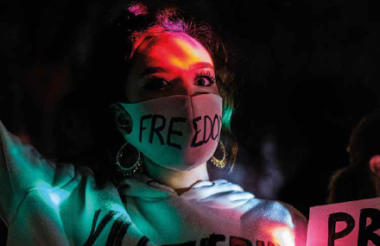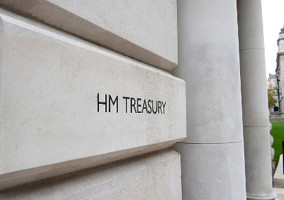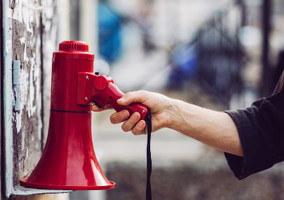In the relentless cycle of 24-hour news, three stories caught my attention on the same day recently. While they are all separate and unrelated, they share a common thread.
It was day two of COP26 and young climate activists Greta Thunberg and Vanessa Nakate had just voiced their impatience with world leaders at a meeting in Glasgow with Nicola Sturgeon – a meeting which the Scottish first minister described as “really uncomfortable”.
The second story concerned the case of a law centre charity whose clients were blocked from accessing legal aid to challenge Home Office decisions on their deportations – decisions that were later found to be unlawful. The Parliamentary and Health Service Ombudsman upheld complaints from the law centre against the Legal Aid Agency, finding that “service failings essentially resulted in one government body blocking individuals from challenging the decisions of another” and that this set a “dangerous precedent”.
Lastly, I also learned that day that the Good Law Project is seeking a judicial review of the appointment process for the new chair of the Charity Commission. The campaign group claims that a Sunday Telegraph article by former culture secretary Oliver Dowden, in which he said the new chair must “restore charities’ focus to their central purpose” because some charities have been “hijacked by a vocal minority seeking to burnish their woke credentials”, threatened the regulator’s independence and so rendered the appointment process unlawful.
The common theme underpinning these three stories is that they are all examples of individuals or organisations challenging the authority of the state. The ability to do so is a fundamental democratic right, and one that we lose at our peril.
Yet there appears to be a number of moves afoot at present to clamp down on legitimate protest and campaigning, limit civic rights and freedoms, and reduce checks and balances on state power. As our cover theme articles in the November edition of G&L show, a number of bills currently proceeding through parliament appear to give the cumulative impression of a steady rowing back of democratic rights and freedoms, and reducing space for civil society. Indeed, Civicus recently added the UK to its watchlist of countries – alongside Afghanistan, Belarus, and Nicaragua – that it has serious concerns about, due to a rapid decline in fundamental civic freedoms. And it’s not only those on the left of politics that are worried – Conservative MP and former shadow home secretary David Davis wrote an article in the Guardian last month warning that the government’s proposals to restrict judicial review are “un-conservative and undemocratic”.
I was also reminded of these threats while watching the recent BBC documentary about the New Labour years of Blair and Brown. Tony Blair was being heckled by a protestor at party conference about his decision to take the UK into war with Iraq. The then-prime minister was plainly rattled by the interjection, but gathered his thoughts sharply enough to retort: “That’s fine, sir, you can make your protest. Just thank goodness that we live in a democracy and you can.”
He made a good point. There is a risk that we in the UK take our democratic rights and freedoms for granted, because most of us have always had them. But if we allow them to be eroded, it could be very, very hard to win them back.
Tania Mason is the editor of Governance & Leadership magazine
Related articles












